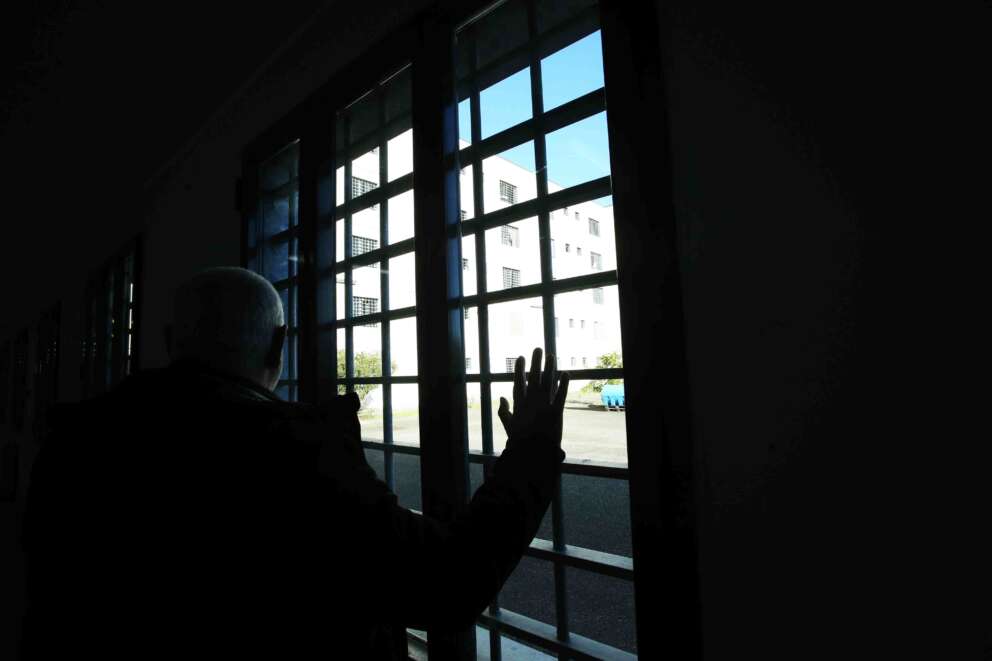Uncle Bennardo, 89 years old and in prison for 33 years, is blind and in a wheelchair: what does it mean to "rot in jail"?

The case in Opera
The question therefore becomes: what state have we fallen into? Does an eighty-nine-year-old blind man in a wheelchair pose a threat to our lives? What do we gain today from his deprivation of care and freedom?

He is 89 years old, has been incarcerated for 33 years, and is now in the Opera prison , just outside Milan. His fellow inmates call him "Uncle Bennardo ." For eight years, he has been a regular attendee at the Nessuno Tocchi Caino workshops , a place of dialogue between inmates and "free" prisoners, a space for research, identification, and reconstruction—for the former, and often for the latter—of their own identities. Human beings locked up in Italian prisons suffer inhuman and degrading treatment. This was certified, on January 8, 2013, by the pilot ruling (pilot because it did not limit itself to judging the merits of the appellants' complaints, but extended its judgment to the entire Italian penitentiary system) of the European Court of Human Rights.
In the case " Torreggiani and Others v. Italy", in fact, the Court found that, in particular due to overcrowding in its prisons (148% in 2012), Italy was violating Article 3 of the European Convention on Human Rights . For this reason, it recalled that: "The State is required to organize its prison system in such a way that the dignity of prisoners is respected " and urged Italy " to act in such a way as to reduce the number of incarcerated persons, in particular through greater application of non-custodial punitive measures". As of 30 May 2025 (report of the National Guarantor for Persons Deprived of Personal Liberty), the situation appears equally inhumane and uncivilized : average overcrowding at 134%, in 10 prisons between 236.84% and 187.34%. Despite its incivility, prison can become a time and space for conversion from violence to nonviolence, from barbarism to civilization. It was also to initiate and support this process that the association conceived its workshops, now four in high-security units. It called them " Spes contra spem," a reference to Marco Pannella 's original interpretation of the Pauline motto when he urged everyone, especially prisoners, to "be" and not "have" hope.
Bennardo Bommarito has embarked on this journey of hope—when all hope seems rationally barred—and for his fellow inmates, he has become "someone who never says a word out of place, but who always has a word of comfort and peace for everyone." On Friday, August 8, he arrived in the Opera prison theater in a wheelchair, pushed by his cellmate Antonio D'Alì, in his seventies, who lovingly cares for him every day. Because charity, empathy, and brotherhood survive even in these places. Those who have participated in the Opera workshops over the years, always seeing him as vibrant, cheerful, and smiling, have discovered with dismay that "Uncle" Bennardo has suddenly gone blind. Does he no longer see because, after thirty-three years, his entire being refuses to continue seeing the bars, the cells, the corridors, the concrete that surrounds and towers over him? Why does he no longer want to see anything, not even those who participate in the workshops? Why did he live for thirty-three years in cramped spaces where the eye can't see and horizons are limited to a few meters? We don't know.
What we know is that a blind, nearly ninety-year-old man in a wheelchair remains locked in a cell. It will be said that he is locked up there pursuant to a sentence and a sentence properly imposed by a court of the Republic. But that seems to be beside the point. The point seems to be: what kind of state do we live in? Our Constitution proclaims that punishment must aim at the re-education of the convicted: what re-education do we expect to bring about by keeping this man in our country's prisons? The director of the Opera prison, the Regional Superintendent of Penitentiary Administration, and the Milan Surveillance Court are aware of Bennardo Bommarito 's condition. Will they act? When? How? The state—many say—is us.
The question therefore becomes: what state have we fallen into? Does an eighty-nine-year-old blind man in a wheelchair pose a threat to our lives? What do we gain today from his deprivation of medical care and freedom? Do we really think he will become a better man if he continues to "rot in prison" ? The arduous sentence will not be up to posterity, but to us. Today. To the figures of institutions, of politics. And of the media. Because " Uncle Bennardo 's" situation cries out for forgiveness, not vengeance.
l'Unità


-U76663258840fTe-1440x752%40IlSole24Ore-Web.jpg%3Fr%3D1170x507&w=3840&q=100)


